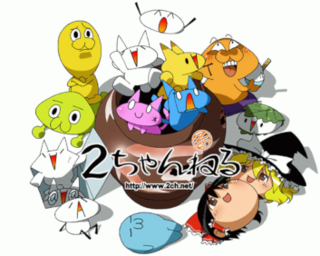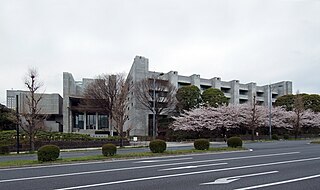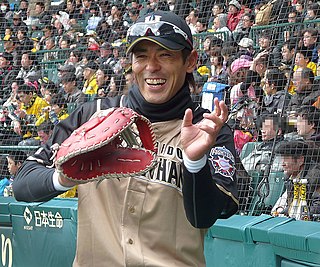Related Research Articles
A precedent is a principle or rule established in a previous legal case that is either binding on or persuasive for a court or other tribunal when deciding subsequent cases with similar issues or facts. Common-law legal systems place great value on deciding cases according to consistent principled rules, so that similar facts will yield similar and predictable outcomes, and observance of precedent is the mechanism by which that goal is attained. The principle by which judges are bound to precedents is known as stare decisis. Common-law precedent is a third kind of law, on equal footing with statutory law and subordinate legislation.

In United States constitutional law, the political question doctrine is closely linked to the concept of justiciability, as it comes down to a question of whether or not the court system is an appropriate forum in which to hear the case. This is because the court system only has authority to hear and decide a legal question, not a political question. Legal questions are deemed to be justiciable, while political questions are nonjusticiable. One scholar explained:
The political question doctrine holds that some questions, in their nature, are fundamentally political, and not legal, and if a question is fundamentally political ... then the court will refuse to hear that case. It will claim that it doesn't have jurisdiction. And it will leave that question to some other aspect of the political process to settle out.

The Constitution of Japan is the fundamental law of Japan. It was enacted on 3 May 1947, as a new constitution for a post-war Japan.

2channel, also known as 2ch, Channel 2, and sometimes retrospectively as 2ch.net, was an anonymous Japanese textboard founded in 1999 by Hiroyuki Nishimura. Described as "Japan's most popular online community, with around ten million users accessing it each day," it had a level of influence in society described as comparable to that of traditional mass media such as television, radio, and magazines. In 2007, the site had an annual revenue of around ¥100 million; it was then the largest site of its kind in the world, receiving 2.5 million posts per day.

Seishirō Itagaki was a Japanese military officer and politician who served as a general in the Imperial Japanese Army during World War II and War Minister from 1938 to 1939.
The Law of Japan refers to legal system in Japan, which is primarily based on legal codes and statutes, with precedents also playing an important role. Japan has a civil law legal system with six legal codes, which were greatly influenced by Germany, to a lesser extent by France, and also adapted to Japanese circumstances. The Japanese Constitution enacted after World War II is the supreme law in Japan. An independent judiciary has the power of review laws and government acts for constitutionality.
Kazuhide Uekusa is a Japanese economist, economic analyst, former senior economist at Nomura Research Institute, and chairman of the Three-Nations Research Institute. He was arrested in 2004 and 2006 for sex offences.

The Supreme Court of Japan, located in Hayabusachō, Chiyoda, Tokyo, is the highest court in Japan. It has ultimate judicial authority to interpret the Japanese constitution and decide questions of national law. It has the power of judicial review; that is, it can declare Acts of the National Diet, local assemblies, and administrative actions, to be unconstitutional.
Eugenics has influenced political, public health and social movements in Japan since the late 19th and early 20th century. Originally brought to Japan through the United States, through Mendelian inheritance by way of German influences, and French Lamarckian eugenic written studies of the late 19th and early 20th centuries. Eugenics as a science was hotly debated at the beginning of the 20th, in Jinsei-Der Mensch, the first eugenics journal in the Empire. As the Japanese sought to close ranks with the West, this practice was adopted wholesale, along with colonialism and its justifications.
The Supreme Court of Finland, located in Helsinki, is the court of last resort for cases within the private law of Finland. The Court's counterpart is the Supreme Administrative Court, which is the court of last resort for cases within the administrative law.

Capital punishment is a legal penalty in Japan. It is applied in practice only for murder, and executions are carried out by hanging.
Power harassment is a form of harassment and workplace bullying in which someone in a position of greater power uses that power to harass or bully a lower-ranking person. It includes a range of behavior from mild irritation and annoyances to serious abuses which can even involve forced activity beyond the boundaries of the job description. Prohibited in some countries, power harassment is considered a form of illegal discrimination and political and psychological abuse. Types of power harassment include physical or psychological attacks, segregation, excessive or demeaning work assignments, and intrusion upon the victim's personal life.

Atsunori Inaba is a Japanese former professional baseball player. He was the Most Valuable Player of the 2006 Japan Series.
(An English translation by the Supreme Court of Japan of this case information has not yet been published; however, one will be published in the Journal of Japanese Law, No. 26, 2008. Some information on this page has been translated and will not correspond exactly to the Court's official translation.)
Rie Isogai was a 31-year-old Japanese office clerk who was robbed and murdered in Aichi Prefecture on the night of 24 August 2007 by three men who became acquainted through an underground message board. Because the three men met on an underground website, the case is frequently called the Dark Site Murder in Japan, "dark site" being the Japanese term for underground websites. Despite Japan's death penalty not normally being used in cases involving a single murder, Isogai's mother launched a petition to have the three killers face the death penalty; one was sentenced to death on 18 March 2009, while the other two were sentenced to life in prison on 13 April 2011.

The law of the United States comprises many levels of codified and uncodified forms of law, of which the most important is the United States Constitution, which prescribes the foundation of the federal government of the United States, as well as various civil liberties. The Constitution sets out the boundaries of federal law, which consists of Acts of Congress, treaties ratified by the Senate, regulations promulgated by the executive branch, and case law originating from the federal judiciary. The United States Code is the official compilation and codification of general and permanent federal statutory law.

Sōsuke Genda is a Japanese professional baseball infielder for the Saitama Seibu Lions in Japan's Nippon Professional Baseball (NPB).
The Fukuoka family murder case refers to the robbery-murder case, perpetrated by three Chinese international students, which occurred in the Higashi-ku ward of Fukuoka, Japan on June 18th, 2003.
Novel Coronavirus Expert Meeting is a Japanese advisory body established in the New Coronavirus Infectious Diseases Control Headquarters of the Japanese Cabinet.
References
- Decisions of The Supreme Court of Japan (Japanese language)
- Decisions of The Supreme Court of Japan (English language, does not include latest cases)
- Teruki Tsunemoto, Trends in Japanese Constitutional Law Cases: Important Judicial Decisions for 2004 [ dead link ], trans. Daryl Takeno, Asian-Pacific Law & Policy Journal
- Teruki Tsunemoto, Trends in Japanese Constitutional Law Cases: Important Legal Precedents for 2005 [ dead link ], trans. John Donovan, Yuko Funaki, and Jennifer Shimada, Asian-Pacific Law & Policy Journal
- Teruki Tsunemoto, Trends in Japanese Constitutional Law Cases: Important Legal Precedents for 2006 [ dead link ], trans. Asami Miyazawa and Angela Thompson, Asian-Pacific Law & Policy Journal
- Teruki Tsunemoto, Trends in Japanese Constitutional Law Cases: Important Legal Precedents for 2007 [ dead link ], trans. Mark A. Levin and Jesse Smith, Asian-Pacific Law & Policy Journal